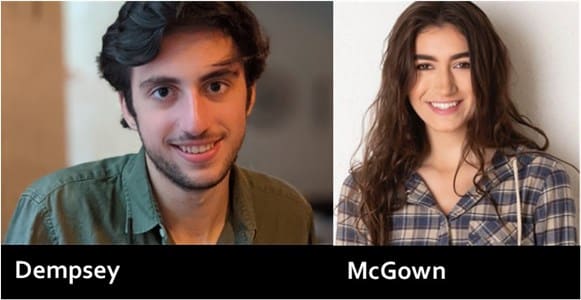
The CUR Social Sciences Division announces its latest awardees. The division’s awards for Excellence in Mentoring Undergraduate Research in the Social Sciences recognize outstanding undergraduate research mentors in the social sciences who promote a positive and inclusive scholarly and teaching environment for undergraduates, as well as contribute to the professional and personal development of students inside and outside of the classroom. Awardees receive a $100 stipend and a plaque. The division’s Undergraduate Conference Presentation Awards of up to $200 each are given to undergraduates presenting original research results at a regional or national, discipline-specific meeting.
Awardee, Excellence in Mentoring Undergraduate Research in the Social Sciences
Andrew “Drew” Christopher, professor of psychological science at Albion College (MI), earned his BBA from Stetson University, his MBA from Southern Methodist University, and his MS and PhD from University of Florida. His research interests include industrial/organizational psychology. Dr. Christopher is at the forefront of mentoring many of Albion College’s first-year, underrepresented, and first-generation students, which compose approximately 40 percent of the college’s undergraduate population. He has mentored 18 students in the college’s Foundation of Undergraduate Research Scholarship and Creative Activity program, has supervised 32 fourth-year theses, and has coauthored approximately 30 peer-reviewed publications or conference presentations with students. Some of Dr. Christopher’s former mentees now in academe have established an informal network for mutual support, inspired by his mentoring model.
Undergraduate Conference Presentation Awardees

Jack Dempsey and Taylor McGown (Texas A&M University; mentor: Heili Pals), “Gender, Race, and Self-Derogation: Why Are White Women Deprecating Themselves?,” 2021 Southwestern Social Science Assn Annual Meeting.
Coauthors: Heili Pals, Fizza Raza, and Graham Jones
The research project’s early results, using a two-generation study over time from 1971 to 2008, shows that, consistently, the biggest difference in self-derogation is among women. White women, regardless of age and generation, have higher levels of self-derogation than Black women and higher levels of self-derogation than white and Black men. The paper presented at the meeting explores this disparity between white and Black women, attempting to understand why white women have generally higher levels of self-derogation.
Founded in 1978, the Council on Undergraduate Research (CUR) focuses on providing high-quality and collaborative undergraduate research, scholarly, and creative activity. Among the many activities and networking opportunities that CUR provides, the organization also offers support for the professional growth of faculty and administrators through expert-designed institutes, conferences, and a wide-range of volunteer positions. The CUR community, made up of nearly 700 institutions and 13,000 individuals, continues to provide a platform for discussion and other resources related to mentoring, connecting, and creating relationships centered around undergraduate research. CUR’s advocacy efforts are also a large portion of its work as they strive to strengthen support for undergraduate research. Its continued growth in connections with representatives, private foundations, government agencies, and campuses world-wide provides value to its members and gives voice to undergraduate research. CUR is committed to inclusivity and diversity in all of its activities and our community.
CUR focuses on giving a voice to undergraduate research with learning through doing. It provides connections to a multitude of campuses and government agencies, all while promoting networking and professional growth to its community.


